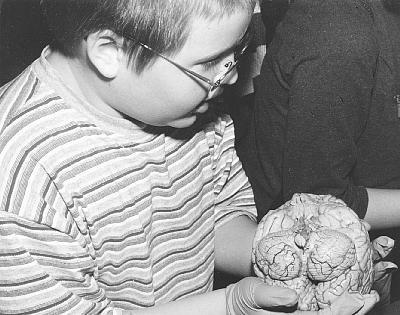November 18, 2004
Neuroscience for Kids site among Scientific American’s top 50
Neuroscience for Kids, a Web site established and maintained by Dr. Eric Chudler of the UW Department of Anesthesiology, has been named as one of the 50 sites selected for Scientific American magazine’s Science and Technology Web Awards 2004. The awards are divided into 10 categories, with Neuroscience for Kids winning in the Science for Kids category.
Chudler established the site in 1997 and has maintained it with support from a Science Education Partnership Award from the National Center for Research Resources at the National Institutes of Health.
The site is at http://faculty.washington.edu/chudler/neurok.html
It’s so popular that it pops up right under the Society for Neuroscience site at the top of a Google search using “neuroscience.”
Over the past year, Chudler, who is a research associate professor of anesthesiology, has been working with the UW TechTransfer’s Digital Ventures to license aspects of the site for other purposes.
Gail Dykstra, software technology manager in Digital Ventures, works with Chudler on the project.
“It’s a real advantage for me to be able to refer all the questions from people who are interested in licensing or using content from the site directly to Gail,” Chudler said. “I know these arrangements will be made in a way that the UW supports.”
Recently, the UW licensed the site to the Research Center of Learning Science in Nanking, the People’s Republic of China, for translation of the site into Chinese and production of a book in Chinese that the center will distribute free in that country. Several other organizations for science education, commercial publishers and educational institutions have expressed interest in working with the site or with portions of it. Some of these proposals would create print or audio-visual content based on the existing material.
Chudler himself is currently working on a book to be published in 2005 or 2006.
He is also looking for long-term support for the site, since the Science Education Partnership Award that provides most current support will run out next year.
“Working with the Digital Ventures people has helped me take a wider look at possibilities,” Chudler said. “It’s been a good collaboration.”



